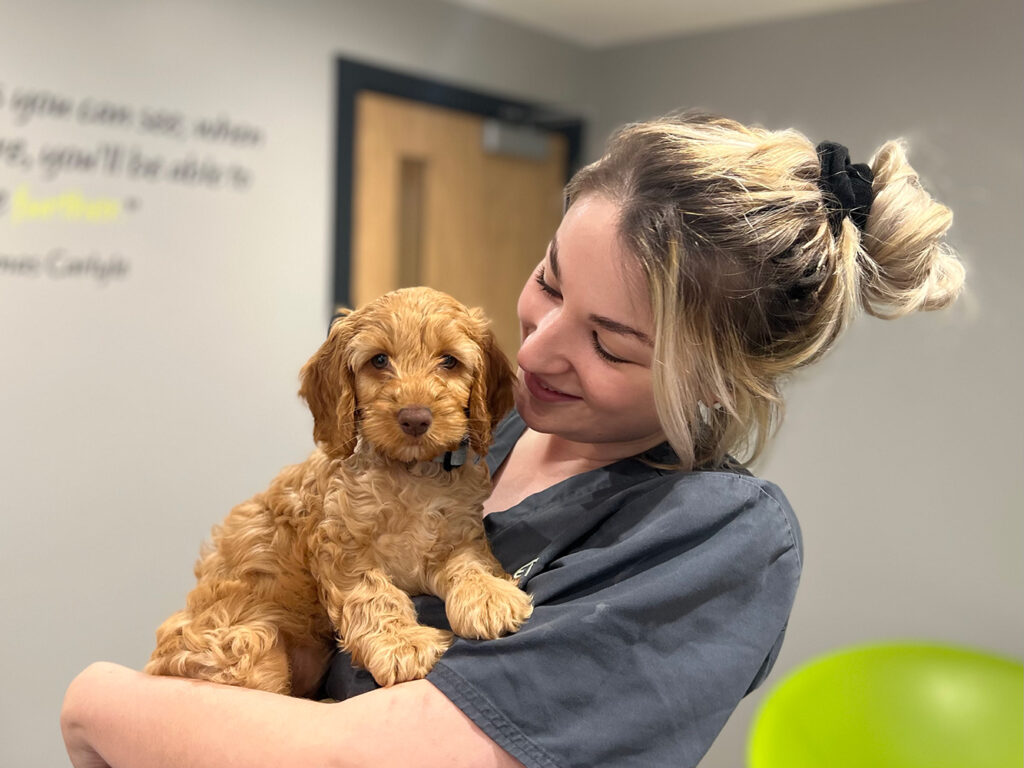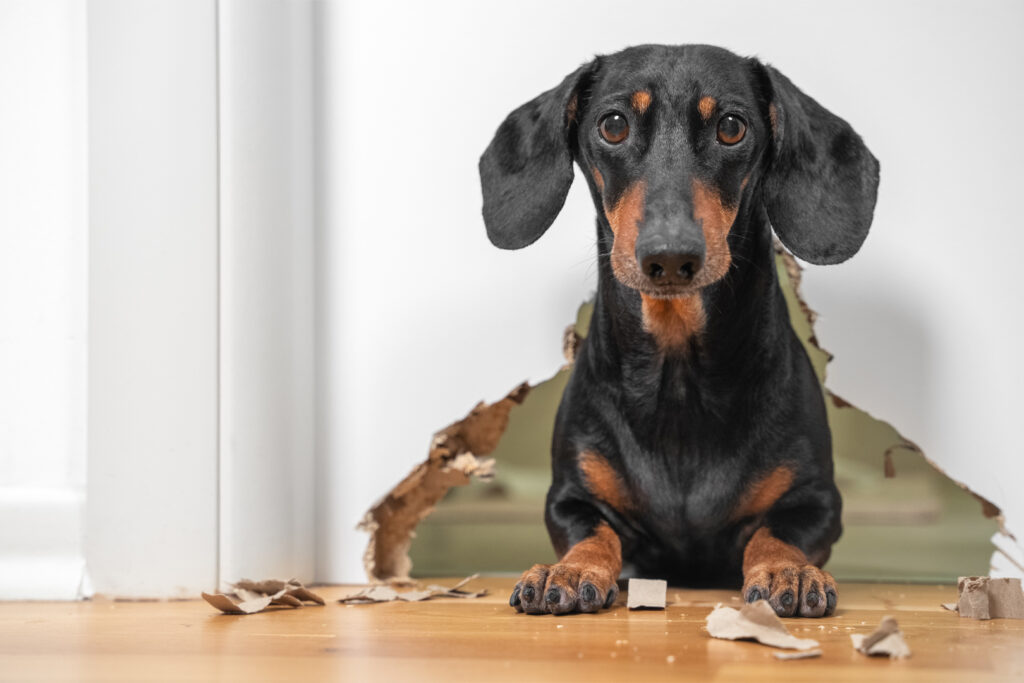
It is incredibly exciting when you bring home your puppy for the very first time as you are sure to experience love at first sight! They have energy that is unmatched by anything else along with all the ups and the downs! They will push your buttons and teeter on your boundaries as much as they possibly can but they will still capture your heart from the outset. The important thing is to look out for any undesirable behavioural issues and address them as soon as they become apparent. This blog post will help you on that journey.

Having recently got herself a cockapoo puppy called Flora, our Rotherham Senior Veterinary Nurse, Emily said,
“Establishing a good routine from the very beginning is really important and will help you and your puppy get used to each other and settle down very quickly. Puppies get bored and anxious and by having a routine, it can help them to know what’s up next and may help to alleviate some of these behaviours.”
Emily, Senior Veterinary Nurse at our Rotherham surgery
At roughly 6 months old, your dog will start going through puberty. In the case of male dogs, they may start to exhibit behaviours like aggression towards other dogs and people or become possessive with their toys or food. They may also start roaming and planning their escape to find themselves a female friend! Neutering can help to subdue or even stop these behaviours alongside a good training routine. For female dogs they will come into their first season at around the same age which may mean they attract the attention of male dogs. This may affect your exercise routine; a female dog that has come into season will need to be kept on a lead when out walking or be kept indoors during this period to avoid that opportunistic roaming male dog that may be on the loose!
Biting
If your puppy is a biter then try to put a toy between them and your hands, you can encourage them to chase and play with the toy. If they do bite you, remove yourself from the situation and give them no attention, this will teach them that biting has no place in this playground! When you go back to play with them make sure you have your toy to hand and continue the play without the biting. If the biting occurs again repeat this process. Like babies they are like a sponge and will learn very quickly what’s right and wrong.
Barking
Your puppy will bark, it is a sure thing – it is their voice after all! It’s the way they speak to you and to other dogs. However, what you don’t want is an excessive barker, one that keeps you and your neighbours all the way down the street awake at night! A way to help eliminate obtrusive barking is to start using some commands, you can use words like ‘quiet’ in a calm way which may help them to stop barking or at least quiet them down. You will need to be consistent with this word whether you’re at home or away and if they are obeying that command, you can use a treat or other form of reward to reinforce this good behaviour.
Destruction
It almost goes without saying that if you have a puppy, you will have some element of chewing going on and ultimately destruction! Unless you are planning to leave your puppy in a crate you will need to address any destructive behaviour so you can go out and not worry about what your puppy is up to when your back is turned. Destructive behaviour from a puppy is usually down to boredom and separation anxiety. You can combat this in a gradual way by leaving your puppy alone in a room for a few minutes at a time and build up over a period. It is important that they recognise that it’s okay to be left alone and that you will come back. If they are whining or barking, don’t go back to them until they have gone quiet, otherwise you may reinforce a behaviour whereby you come running when they start getting vocal. Once you have this behaviour nailed down you can start to leave the house and again build up to a reasonable amount of time and show that you come back. You may want to consider leaving treats for your puppy whilst you have left the room or even the house for that short period initially. The first 10 to 15 minutes of you having left them is likely to be the most stressful for your puppy so giving something to distract them will undoubtedly help them.

Once you have all those first vaccinations out of the way you will undoubtedly want to take your puppy out for their first walks. This is a major milestone! Imagine seeing the world outside and all those smells for the very first time, it’s very exciting for our little puppies! This does of course mean that they are so excited that they will probably pull you on their lead. This is something you want to nip in the bud as soon as you can so you can have nice walks with your puppy. There is lots of advice on how to combat puppy pulling on the lead however one of the good methods that we have come across is that if they start to pull you, stop and wait until the tension has gone from the lead before resuming the walk. It can mean that your walk will take a lot longer than anticipated and you may not get that far but over time you will build this up and your puppy will know exactly what to do.
Do bear with your puppy as they go through these initial stages, it can be a pretty scary world out there for us adults so imagine what it’s like for a little puppy that has just come into this world.
You may want to consider joining puppy training classes as part of addressing your puppy’s behaviours, some people find these very useful and in particular for socialising their puppies.
